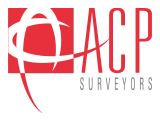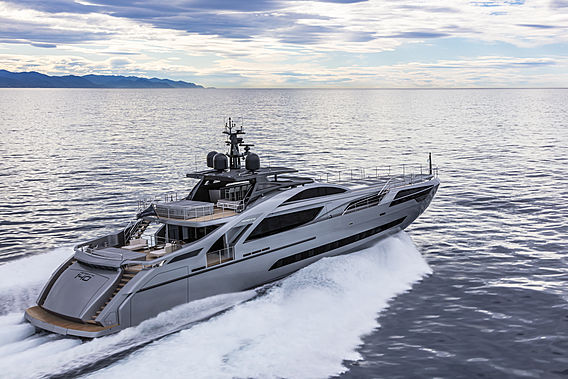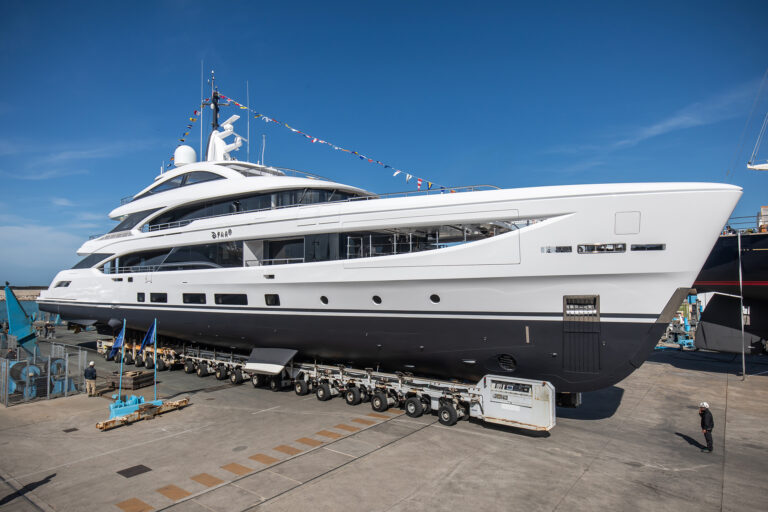What Yacht Owners Need to Know
Owning a yacht is an exciting and significant investment, but with it comes the need for insurance and, in some cases, financing. Both insurance companies and financial institutions often require specific surveys to assess the condition and value of a vessel before offering coverage or a loan. Insurance and finance surveys differ from other types of yacht surveys because they focus on ensuring that the yacht is seaworthy, complies with safety regulations, and holds the appropriate market value. Understanding these surveys, their purpose, and how they are conducted is crucial for yacht owners looking to protect their investments.
The Purpose of Insurance and Finance Surveys
Insurance and finance surveys serve as a safeguard for both the owner and the institution providing insurance or financial backing. These surveys evaluate the yacht’s condition and establish a current market value, ensuring that the yacht meets safety and operational standards required by the insurer or lender. For insurance purposes, a survey can determine whether the vessel qualifies for coverage and what risks, if any, might be associated with it. For financial institutions, such as banks offering loans or mortgages on yachts, the survey ensures that the yacht is a sound investment and that its value supports the loan amount being requested.
Unlike pre-purchase surveys, which focus on identifying defects and issues for prospective buyers, insurance and finance surveys center on risk assessment, value, and safety compliance. These surveys are typically more general than a pre-purchase survey but are critical for obtaining the necessary financial protections.
Types of Insurance and Finance Surveys
There are several types of insurance and finance surveys, each designed to meet specific requirements. Below are the most common types:
1. Condition and Valuation (C&V) Survey: This is the most common type of insurance survey. A condition and valuation survey, also known as a C&V survey, is conducted to assess the yacht’s overall condition and establish its current market value. Insurance companies typically require this survey before issuing or renewing a policy, particularly for older yachts. The surveyor examines the yacht’s structural integrity, onboard systems, safety equipment, and general upkeep to determine its seaworthiness. The valuation aspect of the survey provides an accurate market estimate of the yacht, helping insurers determine the correct coverage limits.
2. Finance Survey: A finance survey is conducted when a yacht owner applies for a loan or mortgage. The purpose of this survey is to confirm that the yacht is a viable asset that holds sufficient value to secure the loan. Lenders often request a finance survey to mitigate their risk, ensuring that the yacht is worth the amount being borrowed. This type of survey assesses the yacht’s condition, age, and market value, giving the lender confidence in the asset’s worth.
3. Reinsurance Survey: For high-value yachts, insurance companies may request a reinsurance survey after a certain number of years, especially if the yacht has undergone significant refits or has been involved in an accident. This survey ensures that the vessel still meets the insurer’s standards and remains insurable at the agreed-upon value.
The Role of the Marine Surveyor
A marine surveyor plays an essential role in conducting insurance and finance surveys. These professionals are independent experts in yacht construction, maintenance, and regulations. They act as an impartial third party, providing an unbiased assessment of the vessel’s condition and value. This objective evaluation is crucial for both insurers and financial institutions, as it ensures the yacht is properly inspected and valued.
Marine surveyors conducting insurance and finance surveys focus on key areas such as hull integrity, engines, electrical systems, and safety equipment. Their goal is to ensure the vessel meets industry safety standards and determine its current market value based on condition, equipment, and age. Surveyors often use specialized equipment like moisture meters and ultrasound to detect hidden issues, ensuring a thorough and accurate assessment.
The surveyor’s report is the cornerstone of the insurance or finance process. It includes detailed findings about the yacht’s condition, any areas of concern, and an estimated market value. Insurance companies and financial institutions rely on this report to make informed decisions about coverage or loan approval.
Specific Requirements for Insurance and Finance Surveys
While the exact requirements for insurance and finance surveys can vary depending on the insurer or lender, there are common elements that boat owners should expect:
- Condition Assessment: The yacht’s overall condition, including the hull, machinery, and safety equipment, will be thoroughly evaluated. Insurers are particularly concerned with the condition of safety features such as fire extinguishers, life rafts, and emergency alarms.
- Valuation: The yacht’s current market value is a key factor in both insurance and finance surveys. A fair and accurate valuation ensures the vessel is insured or financed for the appropriate amount, protecting both the owner and the institution providing coverage or a loan.
- Safety Compliance: Insurance companies typically require that a yacht meet specific safety regulations to qualify for coverage. This includes checking that safety equipment is properly maintained and up to date. Finance surveys may also include this aspect to ensure the vessel is not a high-risk investment.
- Risk Assessment: Both types of surveys assess potential risks associated with the yacht, such as structural weaknesses, outdated equipment, or poor maintenance. The surveyor’s report will highlight any areas of concern that may impact the vessel’s insurability or financing prospects.
How to Navigate the Survey Process
To ensure a smooth insurance or finance survey process, yacht owners should follow these steps:
- Choose a Qualified Marine Surveyor: Engage a reputable surveyor with expertise in insurance and finance surveys. Organizations such as the International Institute of Marine Surveying (IIMS) or the National Association of Marine Surveyors (NAMS) can help you find certified professionals.
- Prepare Your Yacht: Make sure your yacht is in good condition before the survey. This includes servicing the engines, updating safety equipment, and addressing any known maintenance issues. A well-maintained yacht is more likely to pass the survey and receive favorable insurance terms or loan approval.
- Review the Report: After the survey, carefully review the marine surveyor’s report. If any repairs or upgrades are recommended, address them promptly to ensure your yacht meets the necessary standards for insurance or financing.
Insurance and finance surveys are essential for protecting your yacht and securing necessary financial backing. These surveys provide an in-depth assessment of your vessel’s condition and value, ensuring compliance with safety standards and helping owners obtain the right coverage or financing. By working with a qualified marine surveyor and preparing your yacht accordingly, you can navigate the survey process with confidence, ensuring peace of mind for both you and your financial partners.






